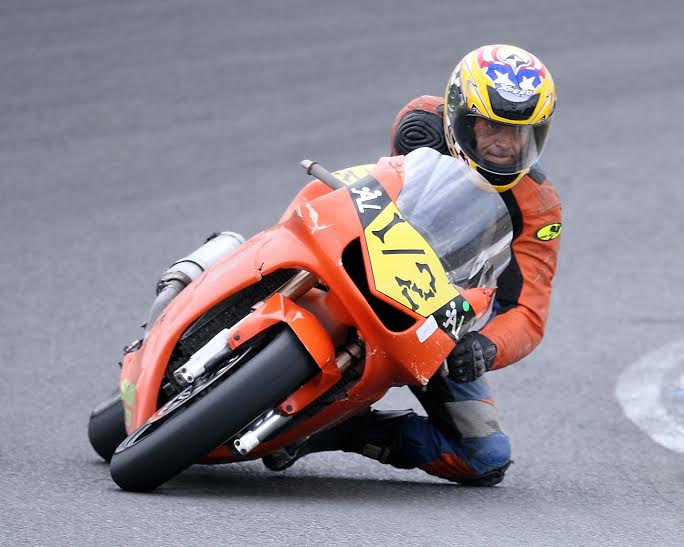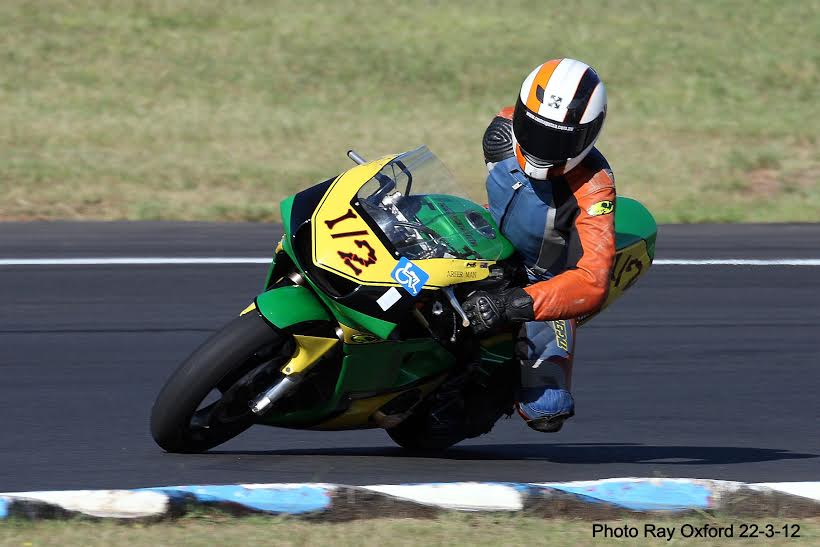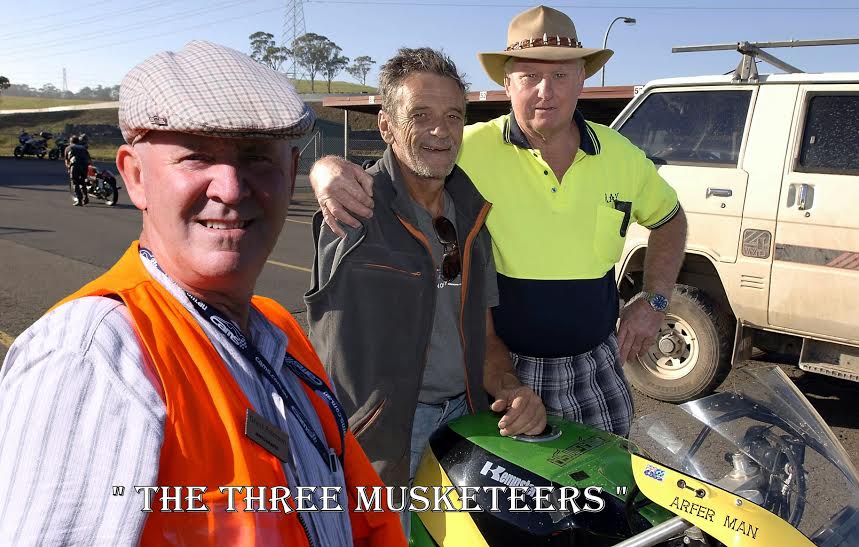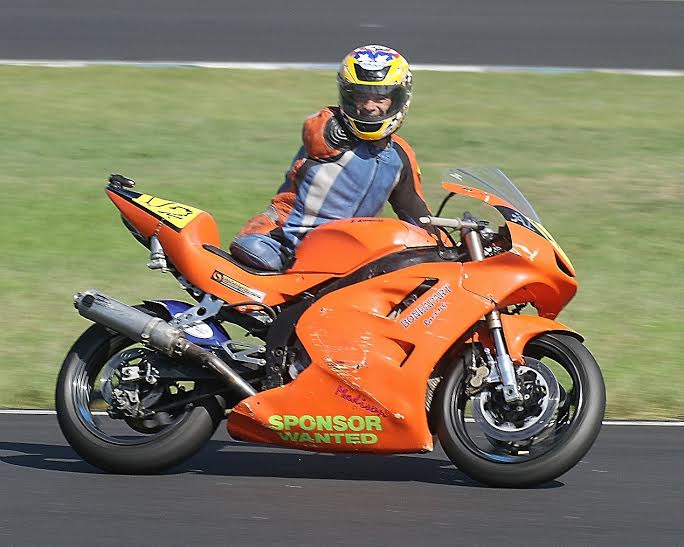Phil Hall Column – Inspirations…Like so many words in our English language today, the word “inspiration” is grossly over-used as well as being incorrectly used. I could add, in defence of my contention, words like “hero”, “genius” and “legend” but I’m sure you get the point.
So, what does the word mean and why am I writing about it?
inspiration – in·spi·ra·tion – [in-spuh-rey-shuh n] – noun
- an inspiring or animating action or influence: I cannot write poetry without inspiration.
- something inspired, as an idea.
- a result of inspired activity.
- a thing or person that inspires.
This week I want to focus on meaning #4. A thing or a person that inspires.
I am pleased to have been able to spend a fair deal of time over the last few years with Alan Kempster, the double amputee who continues to race and to show just what can be done despite the difficulties that have been part of his life. A bright and happy character, his pit garage is always surrounded by well-wishers and members of the public who want to meet him and see for themselves this incredibly gritty and determined man.
Given the situation in which he found himself, it would have been so easy for Alan to retire to his home in rural Victoria and make a life that wasn’t demanding upon his considerable physical impairment. But that is not Alan’s style. After recovery from the road accident that saw the loss of his right arm and his right leg, he set about rehabilitating himself and trying to make his life as normal as possible. And he has been stunningly successful in doing so.
He uses a wheelchair to get around and also has a prosthetic right leg that gives him considerably more mobility. The loss of his right arm means that he has had to develop “work-arounds” to enable him to do the things he wants to do without having to ask for help. Some of his solutions are innovative and some are just plain determination.
Now to get back to a relatively “normal” life after such a traumatic event in your life would be considered amazing and inspiring just by itself but Alan wasn’t content with just that. After the mental scars of the accident had healed enough for him to think about it, the idea of riding a bike again began to form and saw itself gradually become a reality.
There were obvious adaptations that had to be made. He devised an arrangement on the left handgrip that enabled him to use the clutch and brake (in a similar fashion as Mick Doohan had done years before when the fusing of his right ankle left him with the inability to use the back brake). Over a period of time he found that, not only could he ride but the idea of racing started to look like a possibility.
Fast forward to today and Alan, “Arfer Man” as he has on his fairing, is not only competing here in Australia but has recently returned from a very successful trip to New Zealand where he competed in not only road racing but in some other motorcycling disciplines as well. A video documentary called “Left Side Story” has been made, chronicling his recovery and highlighting the way that he has refused to allow his disability to wreck his attitude and his life.
Inspiring? Definitely. But what is really inspiring is spending time with him at race meetings and listening to him talk. Alan makes no pretences about being a media star, what you see is what you get and what you get is a dinky-die Aussie bloke who took the cards that life dealt him and won the game, against all the odds. To see him dealing with the crowds of well-wishers that constantly surround him is a great expereince. It doesn’t matter how busy he is, how rushed the race day calendar is or what mechanical dramas have affected his race bike (and there have been plenty), Alan always has the time to stop and chat and encourage others with his words and with his example.
At the Island Classic earlier this year, we were talking about the day over dinner and he asked, “Did you see the little girl today who had no hands? She was amazing. The things that she could do and the way she just kept smiling all the time, just blew me away.” In fact I had seen the little girl to whom he was referring. And he was right. I watched her have her cap signed by one of the riders then put it back on her head and adjust it correctly with just the stumps of her wrists. It blew me away too.
Alan is actively involved in all sorts of disability sports, water skiing being one of them. “You should see these kids,” he enthuses, “It’s amazing what they can do when they have so many difficulties to overcome.”
It is so typical of the man that he sees courage, determination and a fierce desire to succeed in others and yet plays down those same characteristics in himself. It is no wonder that he has become an important player in raising the profile of disabled people and encouraging politicians and others to think more about their needs.
Three years ago I was involved in a serious motorcycle accident. As someone who had never been in hospital in their life after 60+ years, I found the experience to be daunting in the extreme. But the one thing that I found most difficult with which to deal was the loss of independence. Having to ask someone to do something for you that you used to be able to easily do for yourself saps you self-confidence and reinforces your helplessness. And while my level of injury was nothing compared to Alan’s, the loss of independence is the same for all who must endure and recover from serious injury.
Does Alan expect others to do things for him because he is disabled? Far from it. He works on his own bikes, both at home and at the track. In between races he can be found, wielding the spanners, fitting and removing his tyre warmers, going about the business that is the business of every road racer on race day.
Because, Alan doesn’t see himself as being disabled. On race day he IS just another racer, dealing with the realities as best he can like they all must. While life has inflicted a serious disability upon him, he has chosen to see that as an opportunity, an opportunity to continue to do what he wants to do in spite of what has happened.
Yes, he plays up the disabled side of his condition. Who else would have a race number of ½? His condition has opened doors for him that would have otherwise been closed. It has allowed him to have contact with and to encourage thousands of others who struggle with the day-by-day realities of being disabled.
And it has, as a completely unintended by-product, raised the profile of motorcycle road racing in this country. People who know nothing about the sport know Alan Kempster.
Is Alan Kempster an inspiration? Too right he is.




























